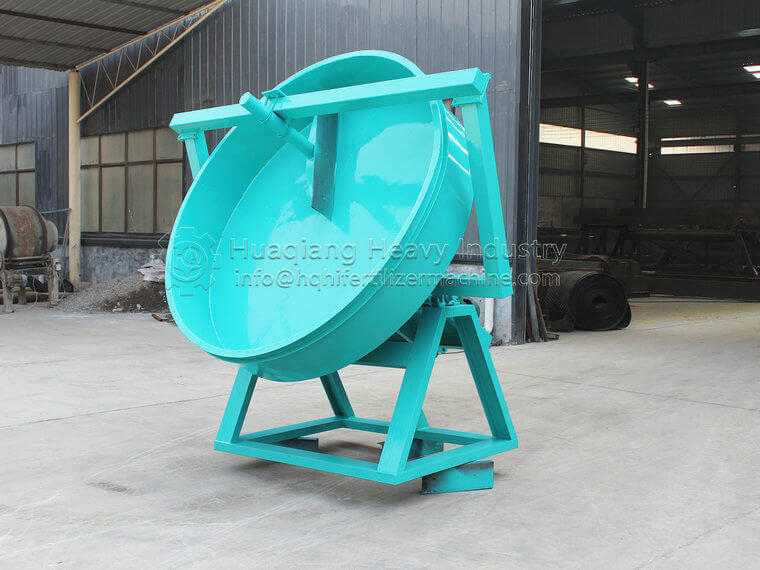The disc granulator plays an important role in the process of converting agricultural waste into organic fertilizers due to its unique granulation effect and flexibility. The following are several common application scenarios in the processing of fertilizers from agricultural waste:
1. Animal manure treatment
Cow manure, chicken manure, pig manure: These livestock manure are rich in essential nutrients such as nitrogen, phosphorus, and potassium. After processing by a disc granulator, they can be transformed into easily applicable solid granular fertilizers, effectively improving soil structure and increasing soil fertility.
Earthworm castings, also known as “red soil”, are rich in natural organic matter and microbial activity. After granulation, they are not only easy to store and transport, but also maintain high biological activity, which has a significant effect on soil improvement.
2. Crop residues
Straw: Straw from corn, wheat, and rice can be crushed and mixed with other organic matter, compressed by a granulator, and turned into granular fertilizer that can be used for farmland cover or direct fertilization, helping to maintain soil moisture and reduce erosion.
Oilseed cake: the residue of soybean, peanut, rapeseed, etc. after oil pressing, which contains rich protein and trace elements, can be processed into high-quality organic fertilizer to provide long-term nutrient supply.
3. Forestry by-products
Wood chips and sawdust: scraps from wood processing plants, after appropriate pretreatment, can also be made into organic fertilizers through disc granulators for the management of forest soil and tree maintenance.
4. By products of food processing industry
Fruit residue and vegetable residue: such as fruit pulp and skin left after brewing and juice pressing, after fermentation treatment, combined with other organic materials for granulation, become efficient bio organic fertilizers, especially suitable for fruit and vegetable cultivation.
Coffee grounds: The residue left after roasting coffee beans, rich in nitrogen and acid-base balance, is very beneficial for adjusting and improving soil pH. After granulation, it is easier to disperse in the field.
5. Organic waste in daily life
Kitchen waste: Food residues generated by households or the catering industry can be converted into organic fertilizer particles through anaerobic digestion or composting, providing fertile resources for urban greening and community gardens.
The disc granulator can not only process diverse agricultural waste, but also customize the production of organic fertilizer granules with different specifications and formulas according to the characteristics and needs of different raw materials. This process not only promotes the recycling of waste resources, but also promotes the development of circular economy and sustainable agriculture. In practical applications, selecting suitable pretreatment methods and granulation process parameters is crucial to ensure the quality and market competitiveness of the final fertilizer.